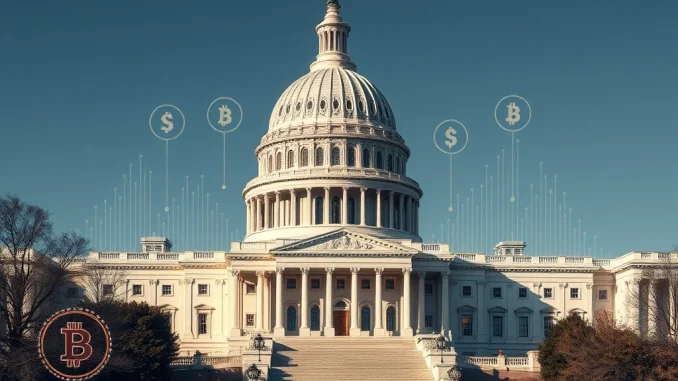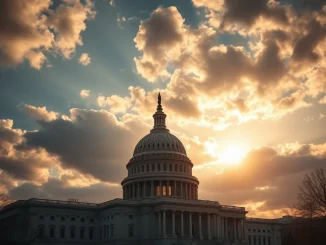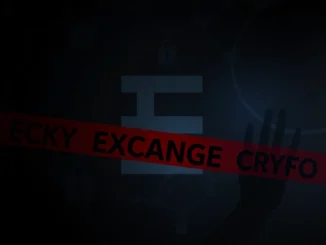
Major news just hit the wires that could significantly shape the future of digital currencies in the United States. The U.S. House of Representatives officially received the Senate-approved GENIUS Act on June 23. This development, reported by Crypto in America host Eleanor Terrett, signals a crucial step forward for **stablecoin regulation** efforts in the nation. This bill is important for anyone involved with or interested in stablecoins and the broader crypto market.
Understanding the GENIUS Act
What exactly does the **GENIUS Act** propose? This legislation aims to build a clear regulatory framework specifically for companies that issue stablecoins. At its core, the bill introduces several key requirements:
- **Licensing:** Issuers would need to obtain a license to operate. This adds a layer of formal oversight.
- **100% Reserves:** A critical requirement is that stablecoin issuers must maintain reserves equal to 100% of the value of their outstanding stablecoins. This is intended to ensure stability and redeemability.
- **Annual Audits:** For larger issuers, specifically those with a market capitalization exceeding $50 billion, the bill mandates annual audits. This provides transparency into their reserve holdings and operations.
These measures are designed to address concerns about stablecoin stability and consumer protection, integrating them more formally into the financial system.
Why US Stablecoin Law Matters
The push for **US stablecoin law** reflects a growing recognition of stablecoins’ role in the digital economy. Stablecoins are digital currencies pegged to a stable asset, like the US dollar. They act as a bridge between traditional finance and the volatile world of cryptocurrencies, facilitating trading, payments, and transfers.
Without clear rules, there are risks regarding issuer solvency, reserve transparency, and potential systemic impact if a large stablecoin were to fail. Establishing a federal framework aims to mitigate these risks, potentially encouraging broader adoption and integration of stablecoins into mainstream finance while protecting users.
Implications for Stablecoin Regulation
The passage of the **GENIUS Act** through the Senate and its arrival in the House has significant implications for existing and future stablecoin issuers. Companies currently operating in the U.S. or serving U.S. customers would need to evaluate their compliance strategies. The reserve and audit requirements, in particular, could necessitate operational changes for some entities.
The bill also addresses foreign stablecoin issuers operating in the U.S., outlining compliance requirements for them as well. This indicates an intent to create a level playing field and ensure regulatory consistency regardless of where the issuer is based.
The Broader Context of Crypto Regulation
This move is part of a larger trend towards comprehensive **crypto regulation** in the United States and globally. Policymakers are grappling with how to oversee a rapidly evolving digital asset space. Efforts are underway on multiple fronts, including exchanges, decentralized finance (DeFi), and other types of digital assets.
The focus on stablecoins in the GENIUS Act highlights their perceived importance and potential systemic risk due to their connection to traditional currencies. Successful stablecoin regulation could set a precedent for how other areas of the crypto market are approached by lawmakers.
What’s Next? The House Receives GENIUS Act
Now that the **House receives GENIUS Act**, the legislative process continues. The bill will likely be reviewed by relevant House committees. Further debate, potential amendments, and eventual votes would follow. The path to becoming law can be complex and lengthy, involving negotiations between the House and Senate if their versions differ.
The crypto industry and market participants will be closely watching these developments. The outcome of the GENIUS Act could significantly impact how stablecoins are used and regulated in one of the world’s largest economies.
Summary
The arrival of the Senate-approved GENIUS Act in the U.S. House of Representatives marks a pivotal moment for stablecoin regulation in the U.S. The bill proposes a framework requiring licensing, 100% reserves, and audits for stablecoin issuers, including foreign entities operating domestically. This effort is part of a broader push for clear crypto regulation to ensure market stability and protect consumers. The legislative journey is ongoing, and its outcome will be crucial for the future of stablecoins.



